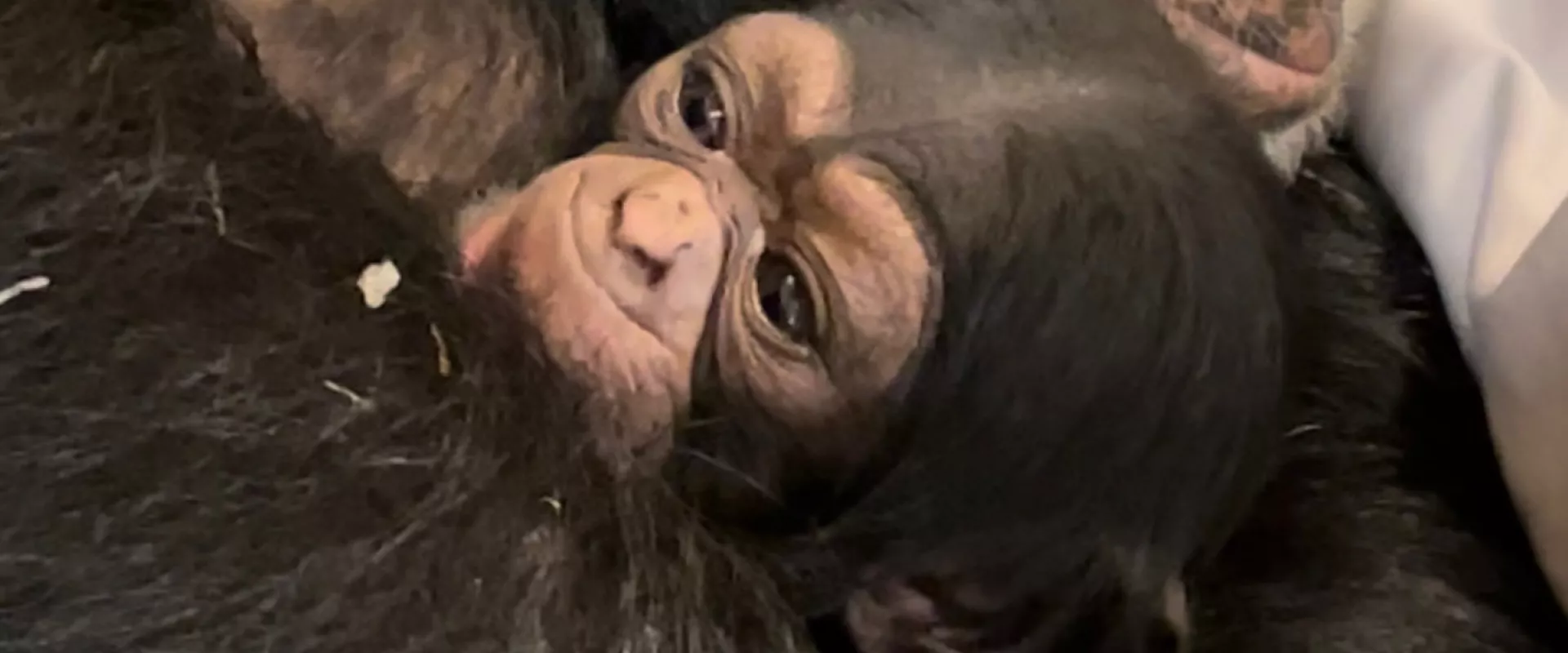ASHEBORO, N.C. — The North Carolina Zoo announces a new addition to the chimpanzee troop. On July 1, a healthy baby girl was born to chimp Genie.
The animal care and veterinarian teams report mother and baby are doing well, and the baby appears healthy, active and nursing.
“Genie is doing so well being a first-time mom," said North Carolina Zoo animal keeper Sarah Himmelspach. "Genie's childcare practice with her little brother Obi is definitely coming in handy. The baby girl is so strong and holding on tight whenever mom moves. Little girl's uncle Obi has been very curious but respectful as mom and baby get more comfortable with the rest of the troop.”
Genie, who is 11 years old, is a first-time mother and was born at the Dallas Zoo in 2011. She arrived at the zoo in 2012 with three other family members – mom Gerre, grandmother Gari and aunt Gigi.
Chimps are very protective of their young, and mothers hold the infants exclusively to their chest until about four months of age; only then are they allowed on the ground to begin exploring.
The most recent chimp births were a male born to Gigi in May and male Obi and female Asha in 2019, who are now rambunctious toddlers.
This is the seventh chimp birth at the North Carolina Zoo since 2010, making the Zoo currently the most successful Association of Zoos and Aquariums (AZA) zoo for breeding chimps. The Chimpanzee Species Survival Plan (SSP), managed by the AZA, recommended this planned birth.
The gestation period for chimpanzees is 230 days. Chimps have an average life span of 35-40 years in zoos.
Chimps are one of the five types of great apes, along with gorillas, orangutans, bonobos and humans. They are well-known for their intelligence and tool use. Chimps communicate in a variety of ways, including vocalizations, gestures and body posture, and facial expressions, allowing them to maintain complex relationships within communities that can number over 100 individuals in the wild.
Chimps are listed as Endangered in the wild because of poaching and habitat destruction in the forests of equatorial Africa, and populations have steadily declined over the years. Although numbers are difficult to estimate, the International Union for Conservation of Nature (IUCN) believes there are 172,000 – 299,000 left in the wild.
With the new baby, the Zoo's troop now consists of 17 chimpanzees – females Gigi, Amy, Ebi, Gari, Genie, Gerre, Ruby, Tammy, Asha and the new infant; males – Jonathan, Lance, Sokoto, Kendall, Gus and Obi and the new infant.
The North Carolina Zoo Society members will vote on the baby chimpanzee’s name in the upcoming weeks.
